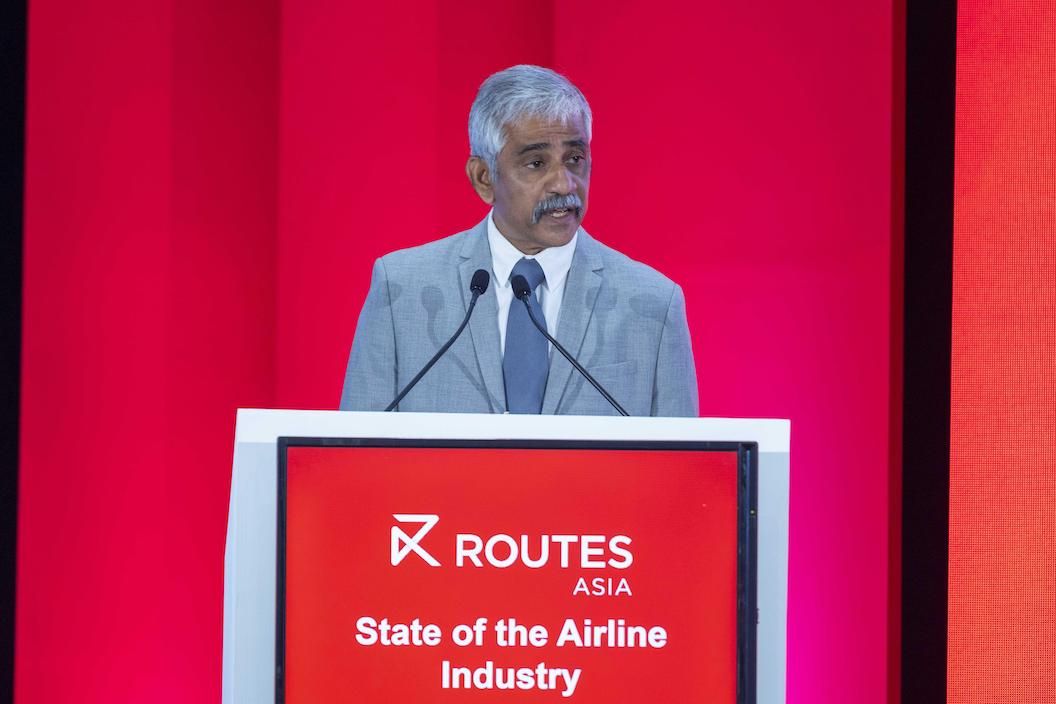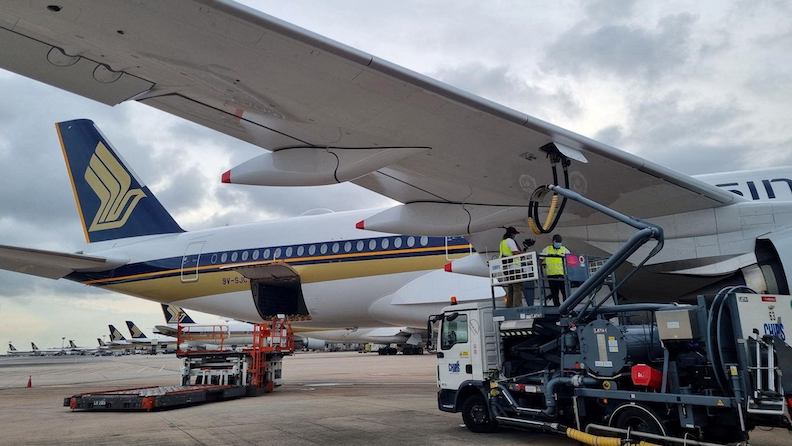AAPA Director General’s Statements at Routes Asia Conference Align With Singapore’s Plan to Implement SAF Mandate Starting in 2026
(langkawi, Malaysia) Speaking at the Routes Asia conference in Malaysia yesterday, Association of Asia Pacific Airlines (AAPA) Director General Subhas Menon’s statements reflected alignment with the recently-announced (Feb. 19th) government of Singapore’s action plan to decarbonize Singapore’s aviation sector, in part by requiring flights departing Singapore to be fueled with some amount of Sustainable Aviation Fuel (SAF) starting in 2026.

Association of Asia Pacific Airlines (AAPA) director general Subhas Menon, courtesy of Ocean Driven Media via Aviation Week Network.
The Singapore Sustainable Air Hub Blueprint, which was launched on February 19th - after being developed by the Civil Aviation Authority of Singapore (CAAS) in consultation with industry and other stakeholders - aims to reduce domestic emissions from airport operations by 20% by 2030 vs. a 2019 baseline, and to achieve net-zero domestic and international emissions by 2050.
As part of its SAF initiative, the CAAS will mandate some use of SAF in flights departing from Singapore starting in 2026: the requirement is expected to phase in starting at 1% in 2026, and will then increase to 3-5% in 2030, subject to global developments and the wider availability and adoption of SAF. CAAS will also introduce a SAF levy - funds which will be used to purchase SAF - for the purchase of SAF to achieve its uplift target, according to Biomass Magazine.

A plane sits on the tarmac at Changi Airport in Singapore, July, 2022 in a handout image from ExxonMobil Asia Pacific via Reuters.
Current estimates indicate that a levy to support 1% SAF uplift in 2026 could increase ticket price for an economy class passenger on a direct flight from Singapore to Bangkok, Tokyo and London by approximately S$3 ($2.23), S$6 and S$16, respectively, per Biomass Magazine.
Speaking at the Routes Asia conference yesterday, Association of Asia Pacific Airlines (AAPA) Director General Subhas Menon called for governments to implement the necessary support initiatives for sustainable aviation fuel (SAF) supply to help meet the needs of the aviation industry. In addition to stressing that policies must be introduced to encourage the aviation industry’s goal of net zero emissions by 2050, Menon stressed that while jet fuel is probably the most profitable fossil fuel for oil suppliers, SAF “promises to be even more lucrative,” according to Aviation Week Network.
“By one estimate, the global investment required to build sufficient sustainable aviation fuel capacity for net zero is just 7.5% of the annual investment expenditure of the largest oil and gas companies in the world,” Menon said.
In November of 2023, AAPA’s member airlines - Air India, All Nippon Airways, Cathay Pacific, Malaysia Airlines and Singapore Airlines - agreed on an aspirational target to use a blend of 5% of SAF by 2030.
The first sustainable delivered to Singapore’s Changi Airport ( (IATA: SIN, ICAO: WSSS) was transported to SIN by Exxon Mobil Corp. (NYSE: XOM) on July 7, 2022.
